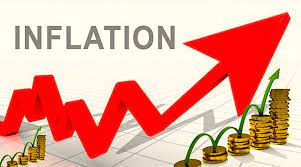Nigeria’s Inflation Problem is Getting “Targeted”

Nigeria’s new central bank chief, Mr. Olayemi Cardoso – who is either camera-shy or prefers working silently behind the curtains – was expected to read his first interest-rate policy decision on Tuesday, after missing the September Monetary Policy Committee (MPC) meeting. Instead, the Apex bank postponed the policy meeting for a second time, choosing to announce its policy thrust over cocktails at the 58th Annual Dinner of the Chartered Institute of Bankers of Nigeria in Lagos.
The urgency to hear Mr. Cardoso is not without reason. Only in the prior week, the National Bureau of Statistics (NBS) announced that headline inflation reached a new high of 27.33% in October, with food prices rising by more than 30.00% for the first time in the CPI series rebased in 2011. Relying on available data, Nigeria currently has the fourth highest food inflation in Africa.
Inflation, of course, is not an abstract economic concept. It is the “invisible hand” driving the Nigerian economy into sachets and creating an uphill task for young Nigerians who, amidst financial repression, religiously hold on to hopes of escaping poverty by saving (The economic unbelievers japa instead). Over the last few years, the inflation problem worsened so that it takes only 3 years to lose half the value of naira cash. This used to take around 9 years in 2014. Good old days. What went wrong? Money printing, mismanaged exchange rates, weak production capacity, monetary policy transmission failure, and 43 other things.
Read Also : FG Commends Lafarge Africa’s Commitment to Environmental Sustainability
Mr. Cardoso’s plan to tackle this problem is quite straightforward and rooted in standard economics. He has so far proven to be unlike his predecessor, who was a wizard in conjuring unorthodoxy and extending the Central bank’s governor’s job description to fiscal policy realms and the farmyards. Mr. Cardoso aims for low and stable inflation through the adoption of an explicit inflation-targeting framework. What this means in plain language is that the CBN will announce (read as forecast) a specific rate of inflation – this could be a range (flexible targeting) or a single digit (strict targeting) – which it would seek to achieve over a defined period. Consequently, interest rate decisions would be based on how well actual inflation compares to the inflation target.
This style of managing inflation is different from much earlier approaches based on adoption of currency pegs as nominal anchors (variables or devices that the central banks try to influence so that it can in turn affect prices in the economy). The use of currency pegs (a price anchor) failed because of the need for monetary independence as well as significant FX reserves buffer requirement (see Impossible Trinity). Another approach historically attempted has been to influence quantitative anchors (money supply) to control inflation (Many have argued that inflation in Nigeria is supply-sided, and this causes monetary policy impotence).
Inflation targeting is not new. Countries such as South Africa, India, Brazil and Colombia are among non-Advanced markets that have adopted this framework. In Nigeria, the debate to follow suit have been ongoing for years and CBN has written papers on inflation targeting.
Read Also : Agency banking contributes N7tn annually in transaction value – Lawmaker
Nothing is guaranteed in life, except tax and death. But these are not times for experiments. Therefore, questions whether inflation targeting would be appropriate for Nigeria is not misplaced. Granted, with this new approach the CBN would be committing fully itself to the price stability objective and the provision of forward guidance would support market expectations, but there are important factors that can affect implementation.
First, an inflation targeting CBN must be truly independent but subject to checks and balances that incentivize optimal performance. The need for the monetary authorities to free themselves from the influence of the government cannot be overemphasized. Under the former leadership of the CBN, indiscriminate use of Ways & Means financing, against legal provisions, was a key stumbling block for monetary policy. The bank’s expansionary actions (including fiscal interventionism) conflicted with price stability mandate. It should be stressed that an independent CBN does not mean fiscal-monetary collaborations are unnecessary. On the contrary, both economic managers must work together to ensure government financing (and budgeting) is not inflationary, to deregulate domestic prices fully (see page 35 of Dr Michael Ojo’s report), and to attract adequate capital investments that can boost productivity (e.g., infrastructure investments).
Of equal importance is the need to strengthen the pass-through effect of monetary policy into the financial and the real sectors. The jump in inflation from 17.71% in May 2022 (when MPR was raised 150bps to 13.0%) to 27.33% (with MPR at 18.75%) underscores the weak effect of MPR as a tool for monetary policy. Over the last two years, prime lending rate (the best interest rate for borrowers with top-notch credit rating) has trailed the MPR while maximum lending rates are not materially different from their levels in the 13.0% – 14.0% MPR eras. Well, for an economy where domestic credit rollout to private sector is actually low (World Bank estimates 14.1% for 2022 for Nigeria versus 92.1%, 71.8%, and 30.8% for South Africa, Brazil, and Egypt), it is not surprising that the MPR (which should affect cost of credit) would be little felt in the real sector. In the financial markets, yields have also largely been suppressed until recently when the CBN removed daily limits on the Standing Deposit Facility (allowing financial system liquidity to exit hands of banks), raised stop rates on T-bills and OMO auctions and enacted some market sanitizing reforms. Without fixing this problem, monetary policy will not have desired effect on general prices.
Read Also :Binance users withdraw $1B as CEO faces charges – Report
Another important prerequisite would be the rebasing of the domestic Consumer Price Index. My ink is almost dry so I should harp on this point in the no distant future. The main point here is that inflation must be accurately captured, the drivers thoroughly understood, and methodology updated as consumption patterns shift. The good thing is the NBS in a tweet announced ongoing plans to rejig the inflation basket.
There are other key considerations for CBN to work on before launching into the era of inflation targeting (as captured in the IMF’s report shown below).
Mr. Cardoso’s speech – although quite lengthy – provided important insight into the delays in fixing an MPC meeting. It appears that the bank, for now, is setting the stage for the policy transitions and interest-rate announcements to come. Mr. Cardoso has made very bold statements, and all eyes are on him. He is perhaps not camera shy; he just prefers to do more work than talk. Time would tell.







